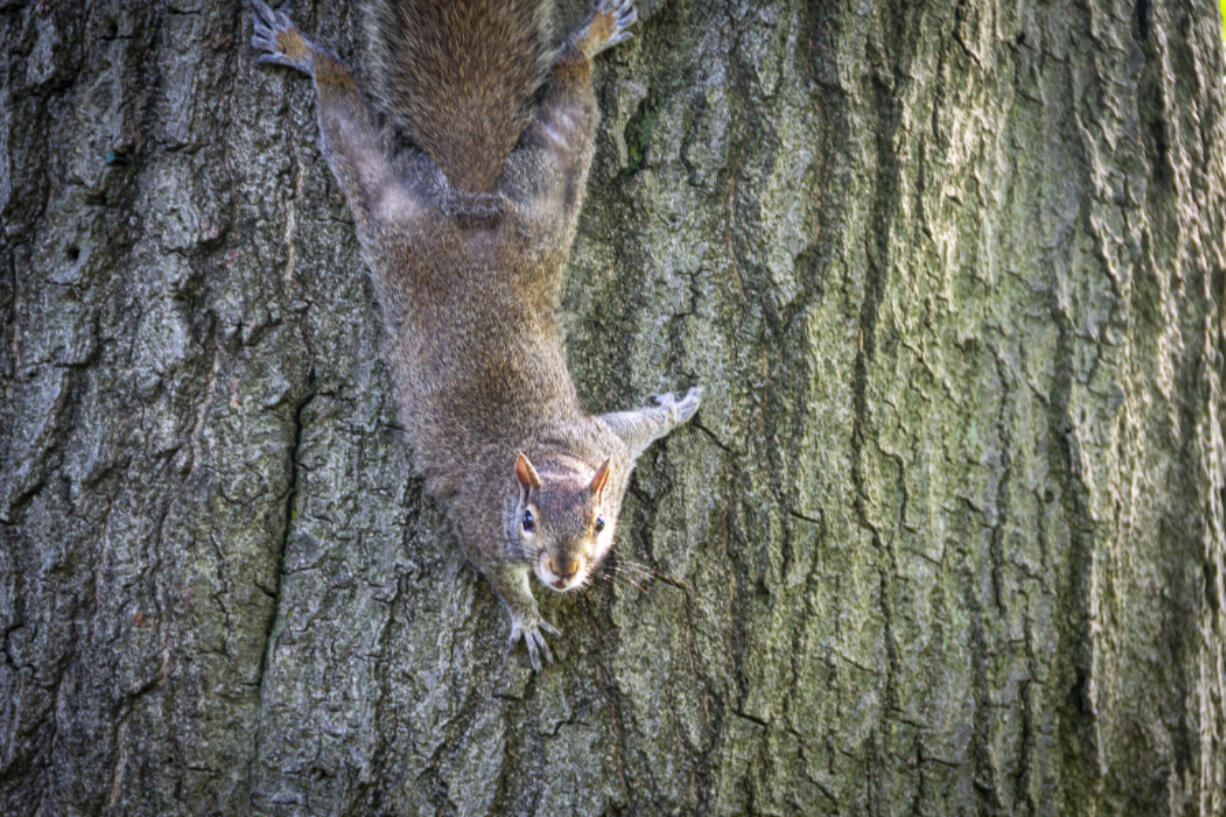Vancouver Audubon Society and several other environmental groups are suing the state for failing to protect habitat for the endangered western gray squirrel.
“The western gray squirrel is an indicator species for the health of rare oak woodland habitat in Washington. Given the lack of protective regulations, the species’ numbers have continued to decline statewide for decades,” the lawsuit says. “Today, it is widely believed fewer than 1,500 western gray squirrels are left in Washington.”
The Vancouver group, along with Friends of the Columbia River Gorge and Friends of the White Salmon River, filed the suit Feb. 23 in Clark County Superior Court against Washington’s Department of Natural Resources and Public Lands Commissioner Hilary Franz. Joining the local groups in the suit are environmental advocacy nonprofits WildEarth Guardians out of Santa Fe, N.M., and The Center for Biological Diversity based in Tucson, Ariz.
The western gray squirrel is not to be confused with the prolific eastern gray squirrel common in urban areas. The western variety — also known as Sciurus griseus and in some areas as the Columbian squirrel, Oregon squirrel or silver-gray squirrel — is the largest tree squirrel in the Northwest. It primarily lives in forests and has a range that stretches from northern Mexico through California, Oregon and Washington. It was first described by Lewis and Clark Expedition member George Ord in 1818.
In Washington, the western gray squirrel was listed as a threatened species in 1993 due to habitat loss from urbanization and wildfires, and the invasion of the scotch broom shrub. Squirrel populations have also been reduced by diseases and increased roadkill mortality. In November, the western gray squirrel was reclassified as an endangered species in Washington.
Although the state did take steps to protect squirrel populations by listing them as an endangered species, the suit claims the Department of Natural Resources, “failed to prepare and submit to the (Washington State Forest Practices Board) a proposed list of critical habitats,” within 30 days of listing the animals as an endangered species.
“This is critical habitat with respect to forest practices only. It’s not critical habitat for the species statewide,” Friends of the Columbia River Gorge attorney Nathan Baker said by phone Wednesday. “State law required DNR propose critical habitat to the forest practices board within 30 days of the listing, which was effective Dec. 28, 2023. They had until Jan. 27, 2024.”
Instead, the state agency recommended the Washington Department of Fish and Wildlife convene a working group to evaluate the requirements for critical habitat areas, the suit says.
Baker said the state agency appears to be interpreting the law differently than it’s written.
“DNR seems to be taking the position that instead of having a deadline of 30 days to propose critical habitat, they have twisted that around into they have 30 days to recommend whether to designate critical habitat,” he said.
In the suit, the groups have asked for a court order requiring the governmental agency to fulfill its official duties. The suit asks the state be required to comply within 30 days of the ruling.
Baker said the next step is for the state to respond to the petition, which is due within the next few weeks.
“We may find out more about what their defense is, why they haven’t met their obligation,” Baker said.




